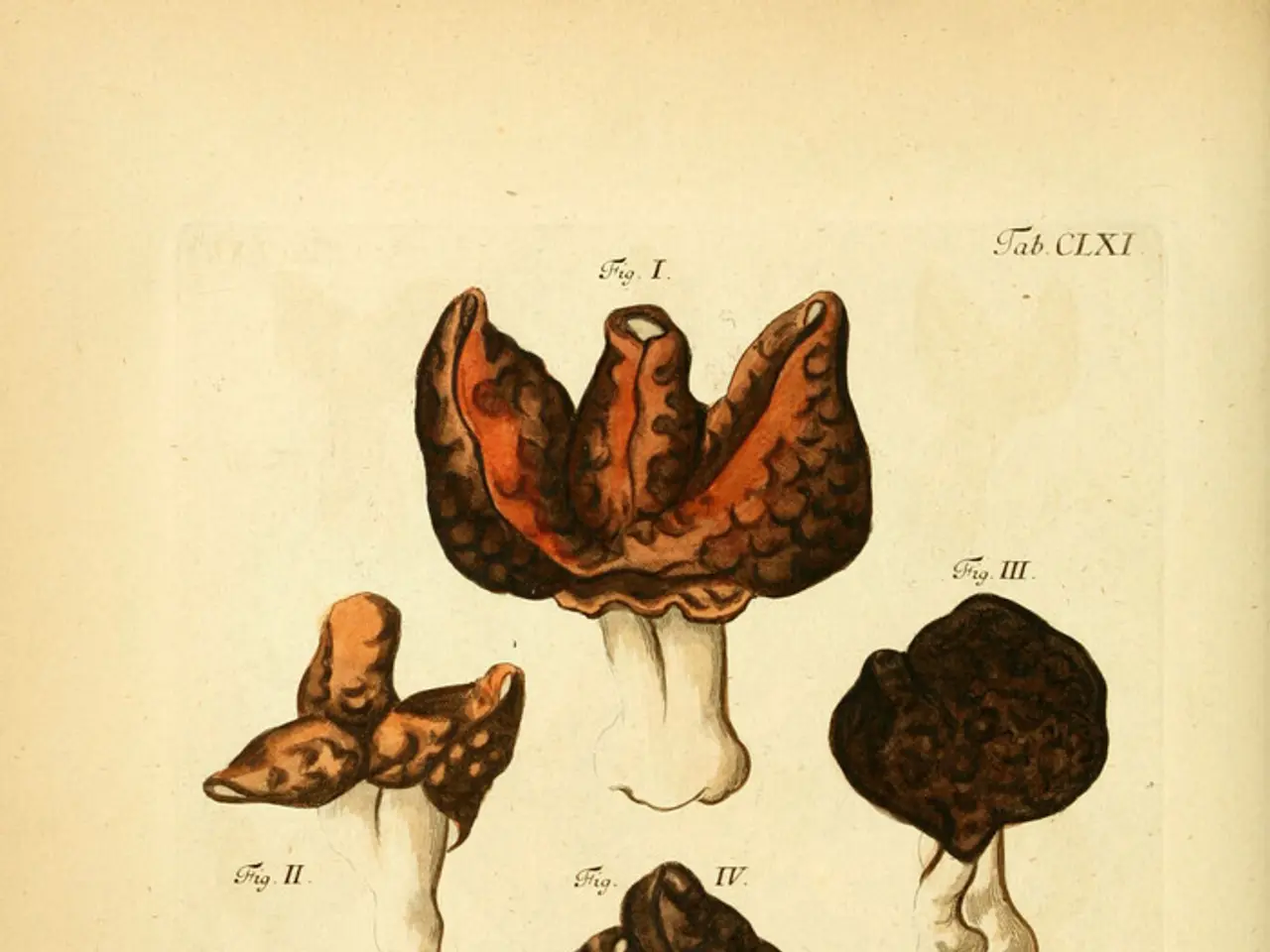illnesses of meningitis: signs, remedies, origins
Meningitis, an inflammation of the meninges (the protective membrane surrounding the brain and spinal cord), can be caused by various infectious and non-infectious agents. Here's a closer look at the main types of meningitis, their symptoms, and treatments.
Bacterial Meningitis
Bacterial meningitis is the most common type of infectious meningitis. It happens when a bacterial infection spreads to the meninges. Common bacteria causing bacterial meningitis include Neisseria meningitidis, Streptococcus pneumoniae, Haemophilus influenzae type b, Listeria monocytogenes, and Group B streptococcus. Symptoms include fever, neck stiffness (meningismus), altered mental state, headache, seizures, neurological deficits, and increased intracranial pressure signs. Rapid empiric intravenous antibiotics are crucial for treatment, and sometimes adjunct glucocorticoids are used.
Viral Meningitis
Viral meningitis occurs when a viral infection spreads to the meninges. Enteroviruses, herpes simplex virus (HSV), varicella-zoster virus (VZV), mumps virus, and others can cause viral meningitis. Symptoms include fever, headache, neck stiffness, confusion, and less severe symptoms compared to bacterial meningitis. Most cases of viral meningitis resolve without specific treatment, except for HSV/VZV cases, which may require antiviral drugs like intravenous acyclovir to prevent serious complications and death.
Fungal Meningitis
Fungal meningitis happens when a fungal infection travels to the brain. Cryptococcus, Histoplasma, and Coccidioides are common fungi causing fungal meningitis, mainly in immunocompromised hosts. Symptoms develop more slowly than bacterial meningitis, and may present as chronic meningitis over weeks. The treatment for fungal meningitis involves long-term, intensive antifungal therapy, starting with IV amphotericin B and followed by oral antifungals like fluconazole.
Parasitic Meningitis
Parasitic meningitis is a rare type of meningitis caused by parasites like Toxoplasma gondii, Angiostrongylus cantonensis (rat lungworm), and Naegleria fowleri. Naegleria fowleri infection causes rapidly fatal meningoencephalitis with severe neurological decline. Symptoms vary for other parasites; Naegleria infections are almost always fatal despite treatment.
Non-Infectious Meningitis
Non-infectious meningitis does not originate with an external pathogen or parasite and is not contagious. It can occur when a drug causes swelling around the brain, a chronic illness irritates the meninges, or cancer affects the brain. Symptoms are similar to other types of meningitis and depend on the underlying cause. Treatment targets the underlying cause, such as immunosuppressants for autoimmune meningitis or stopping offending drugs.
A key diagnostic tool for meningitis is a lumbar puncture for cerebrospinal fluid (CSF) analysis coupled with microbiological studies (culture, PCR) to confirm diagnosis and help differentiate types by CSF profiles.
Prevention includes vaccination against common bacterial agents and chemoprophylaxis for contacts exposed to meningococcal meningitis. Early and aggressive medical care greatly improves the outlook for meningitis, and long-lasting neurological or other issues, such as behavior changes, hearing impairments, or vision difficulties, may occur.
- Bacterial meningitis, an infectious type caused by bacteria like Neisseria meningitidis and Streptococcus pneumoniae, can lead to severe symptoms such as fever, neck stiffness, altered mental state, and seizures.
- Unlike bacterial meningitis, viral meningitis, which is caused by viruses such as enteroviruses and herpes simplex virus, usually presents with milder symptoms like fever and headache, although some cases require antiviral drugs.
- Fungal meningitis, caused by fungi such as Cryptococcus and Histoplasma, is a slow-developing form that requires long-term, intensive antifungal therapy for treatment.
- Parasitic meningitis, caused by parasites like Toxoplasma gondii and Angiostrongylus cantonensis (rat lungworm), is a rare type with varying symptoms and is often fatal despite treatment.
- Non-infectious meningitis, not caused by an external pathogen, can result from autoimmune responses, chronic illnesses, or cancer, and its diagnosis and treatment focus on addressing the underlying cause.
- In the realm of health and wellness, including mental health, therapies and treatments like CBD could potentially offer relief for chronic conditions and improve overall quality of life, but more research is needed to fully understand its benefits and risks.




